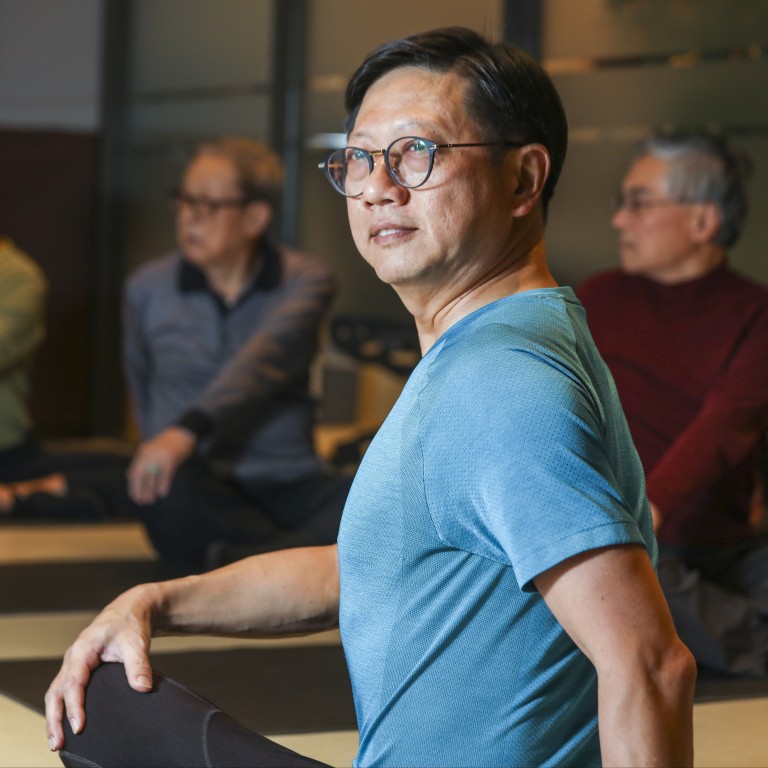
Male-only yoga classes and other alternative therapies help men fight cancer
- Relaxation can help reduce side effects from chemotherapy and cut down the stress that comes with fighting cancer
- Male-only yoga classes allow men to destress without feeling self-conscious
At cancer support centres across Hong Kong, patients are increasingly seeking alternative therapies to ease stress. They are also turning to dedicated studios that offer yoga, meditation, gong baths, qi gong and other practices.
On a recent afternoon, Collin Ng Kwok-lam led a men-only yoga class at CancerLink in North Point, a support centre under the Hong Kong Cancer Fund umbrella. Ng is a survivor who beat stage 3 colon cancer nine years ago.
The young cancer survivors at risk of depression and PTSD
The style of yoga for this small group differs from that on offer at most centres. Instead of physically demanding yoga poses such as the side crow, or doing one-minute planks, this group engaged in deep breathing techniques and gentle stretching to help them relax, raise their body awareness, and boost their balancing skills and pliability.
Ng had attended Cancer Link wellness programmes during his own battle with cancer, and said those sessions instilled a feeling of calm that helped him cope with eight months of chemotherapy.
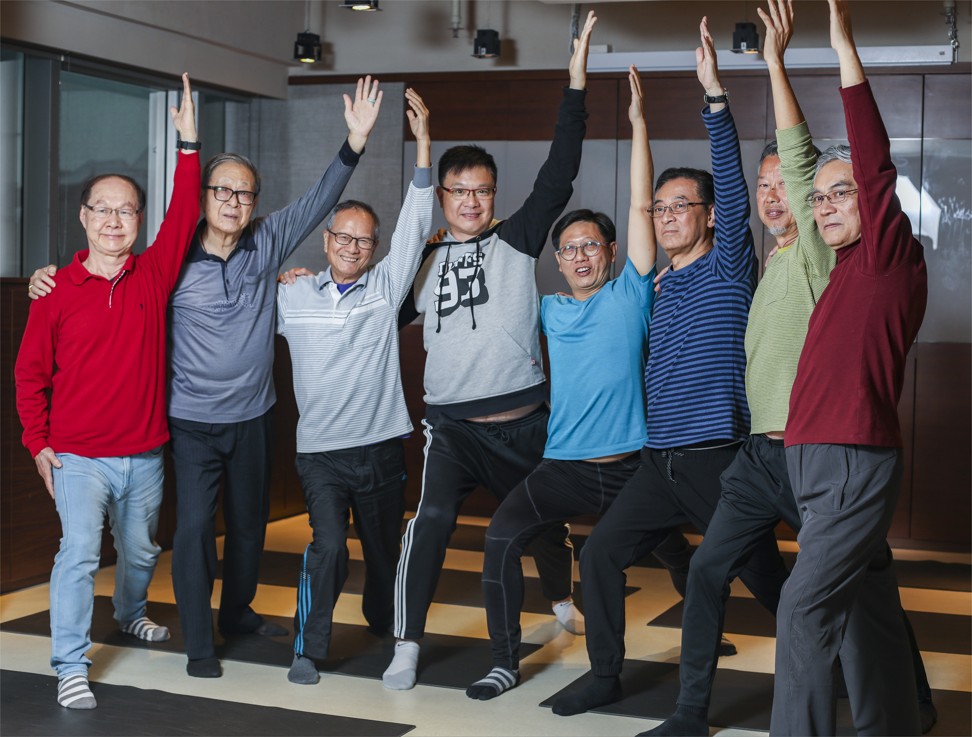
At the time, the yoga class on offer was dominated by women, with about 50 women and three men. “I kept to a corner,” he says, recalling how he felt self-conscious. “All the male patients had this feeling, and we each found a corner.”
One of them was C.Y. Chiu, who used to hide at the back of the mixed class. Diagnosed with stomach cancer in 2016, the 66-year-old says exercises learned in Ng’s class in the past six months have benefited him. “I feel more calm, and more flexible,” he says.
Wilson Chan is a 62-year-old retiree who beat colon cancer in 2000, then prostate cancer in 2015. He had never engaged in exercise before taking part in Cancer Link’s activities. Now he values its role in safeguarding health, and is a regular of the men-only yoga and Wing Chun kung fu classes.
A Cancer Fund volunteer cold-called Chan to invite him to join this class last year. Before that, he had reservations about joining a session with few fellow men.
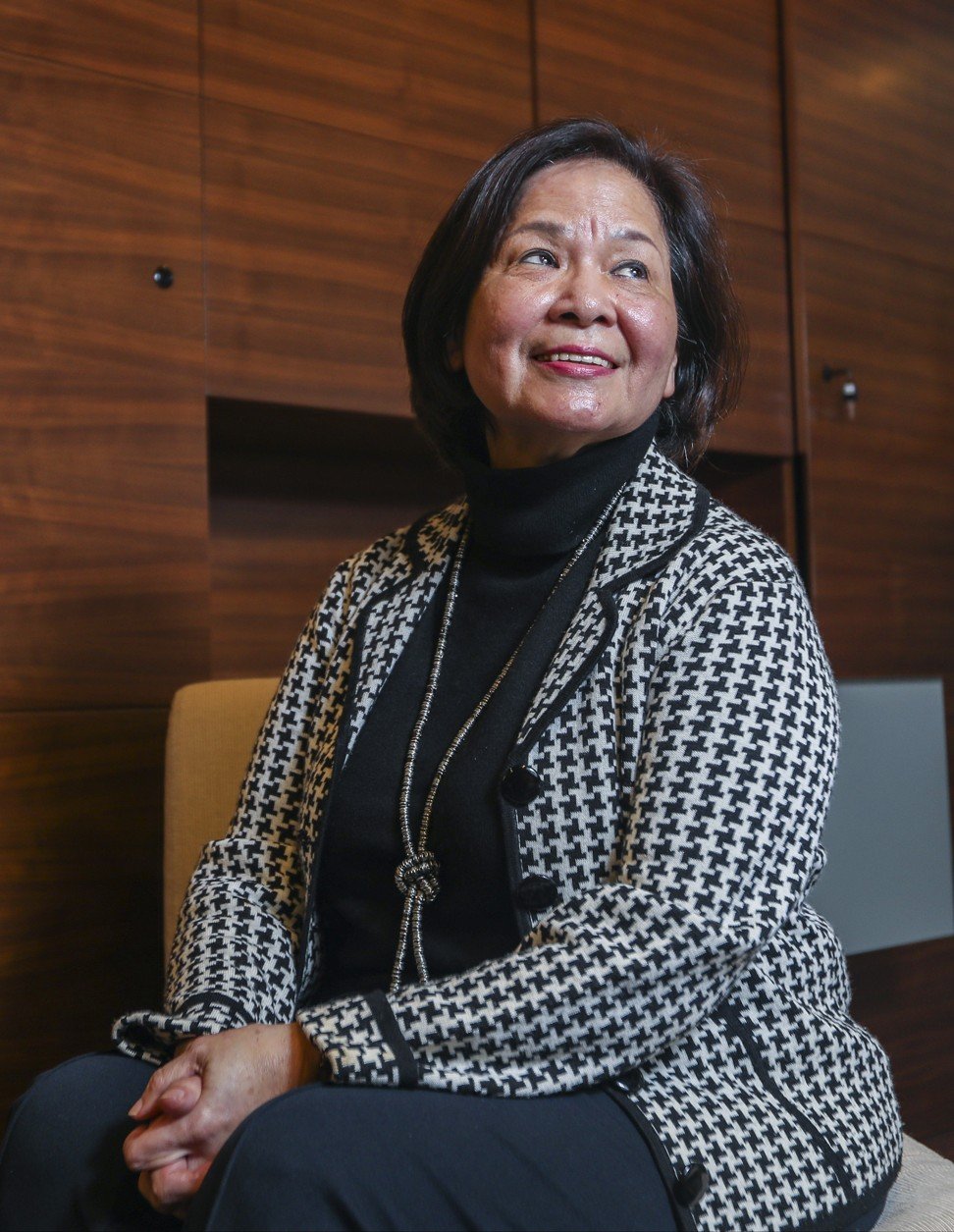
These classes are a support system for participants. Chan admits that having been pushed into retirement at age 60 and grappling with his health crises triggered bouts of depression. Meeting people like Chiu and having an active social life as a result has made a difference. “We all made our own special social connections,” says Chan.
This season, the average age of participants in Ng’s classes was 79. He adjusts the sessions to cater to this crowd, who may also grapple with physical challenges due to treatments.
Shiao-kuang Hsueh Maddox, head of Cancer Link’s wellness and holistic care department, led the organisation’s first yoga classes more than 20 years ago; since then the waiting list has grown and contributed to the establishment of its wellness programmes.
Lily Jencks on landscaping Frank Gehry’s Hong Kong cancer centre
Today, yoga-style classes are held at various locations. For example, partner organisation Pure Yoga donates 20 hours a week of spaces in its classes for cancer patients.
About a third of the organisation’s participants are male, but only seven per cent take part in wellness programmes. The men-only yoga sessions started last year to change that.
“Men have a different body structure, muscle and bone structures are different, so we thought … we can have men’s yoga classes, where they can come and relax and not feel competition with women who may be more flexible,” says Maddox.
The rapport among cancer survivors in the classes is another major benefit. The goal is to bolster their inner strength and improve their life quality.
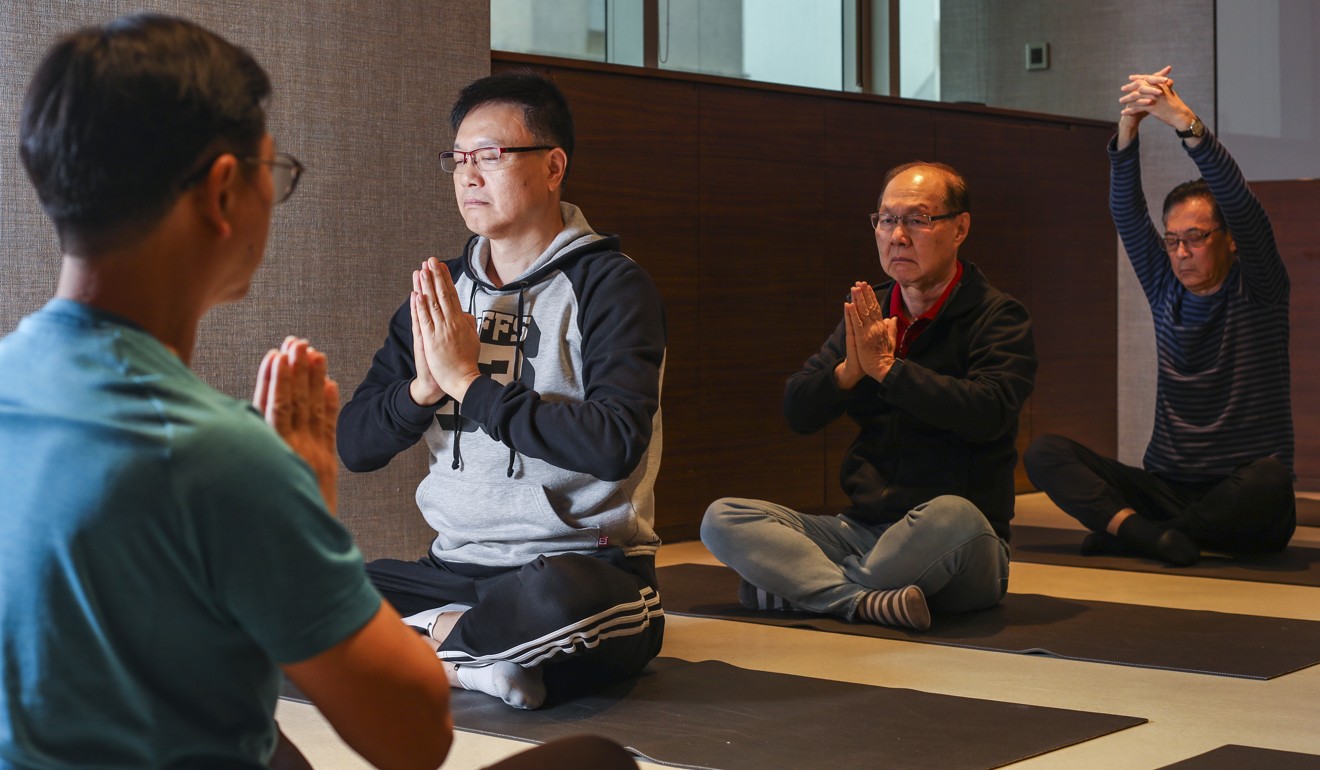
Other practices offered in its programme include tai chi, meditation and qi gong.
Research shows these disciplines complement patients’ conventional care, by reducing stress levels and helping them cope with side effects.
Stressed out in Hong Kong? Try sound therapy with a gong bath
In Wong Chuk Hang, Felix Chang is taking part in a gong bath at Red Doors Studio, led by founder Martha Collard.
The 50-year-old furniture designer and founder of Slack Lifestyle was diagnosed with stage 3 nasopharyngeal cancer last year and has had radiation and chemotherapy treatment.
During his fight, Chang endured an emotional roller-coaster ride. He says the treatment “really knocks you about” and he faced anxiety from worrying how to care for his family, including his six-year-old son.
The gong baths help soothe his mental turmoil.
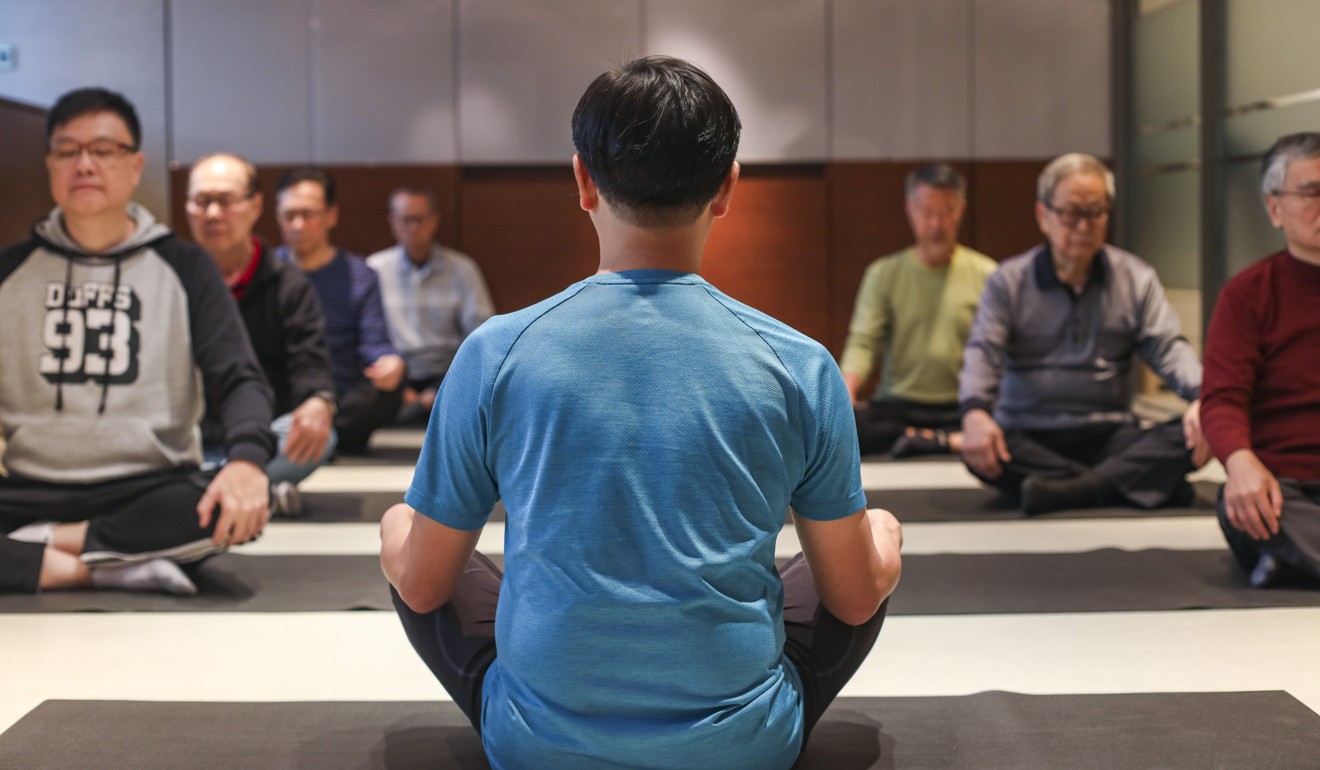
“Whether you believe in gongs and sounds having magical powers and all that stuff doesn’t matter,” Chang says.
Though he would like to attend sessions more frequently, the physical toll of his treatment prevents this. As he tells his story, his hands tremble, a side-effect of chemotherapy.
The peace of mind he gets from the sessions helps the most. “That’s 90 per cent of the battle – the first thing oncologists, doctors [and cancer survivors] say … is that you’ve got to be positive,” he says.
“If you can do that in your mind and truly believe in it, that’s 90 per cent of the healing.”
Collard performs free of charge at Maggie’s Cancer Centre in Tuen Mun. She says the sound waves from the gongs nudge you into a deeply relaxed state.
“It’s rejuvenating on so many different levels, as there is no tension in the body,” she says, adding that the immune system and organs function better in a non-stressed state.
The studio founder and gong distributor believes high stress and anxiety associated with cancer affect your immune system.
How a Hong Kong cancer sufferer keeps going – and helps others
“Having a practice whereby you get centred and grounded makes a big difference,” she says, noting that this is why CancerLink and Maggie’s offer many reflective practices.
A gong bath can nudge you into that altered state in which you quickly feel utterly relaxed, more so than yoga or meditation, she adds.
I tend to believe her. Though I am a novice in gong baths, I was instantly lulled into a calm, meditative state in this session with Chang.
Collard says some of her cancer survivor clients who suffer numbness after chemotherapy claim such sessions help bring some sensation back. Others say they sleep better.
Where to de-stress
Red Doors Studio
Flat A, 21/F, Lee Fund Centre, 31 Wong Chuk Hang Rd, Wong Chuk Hang, red-doors.com
Maggie’s Cancer Caring Centre
Tsing Chung Koon Rd, Tuen Mun Hospital, Tuen Mun, maggiescentre.org.hk
Yoga for men
CancerLink’s Support Centre, various locations including 2201-03, China United Centre, 28 Marble Rd, North Point.
Hong Kong Cancer Fund offers 494 free wellness programmes year round – visit Cancer-fund.org or call 3656 0800.
Balance Health
27/F, Universal Trade Centre, 3 Arbuthnot Rd, Central. Tibetan singing bowl meditation, yoga and qi gong. balancehealth.com.hk.

